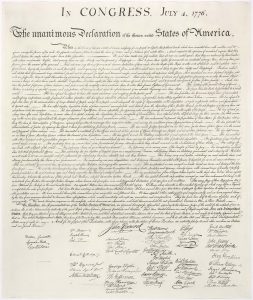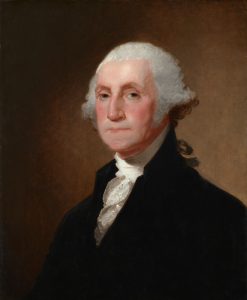SAR Youth Video Contest entries must contain original content, must be based on scholarly research, and may not violate copyright laws. What does this mean?
Well, right off the bat, there’s no one around with first-hand information on the Eighteenth Century, so you will have to find what has been written, (or perhaps performed on film or video), in textbooks, your library, the Internet, etc. In fact, you need to credit at least three of these references as your sources of information.
 But, you can’t just directly use anything you’ve found. Everything written, published, painted, drawn, photographed, recorded, created with AI, or posted (at least, in the last hundred years) is presumed to be protected by U.S. Copyright law. It is fair use for you to learn, process, and express in your own way what you have read or seen or heard, but not to use verbatim text or images or sounds/music found elsewhere.
But, you can’t just directly use anything you’ve found. Everything written, published, painted, drawn, photographed, recorded, created with AI, or posted (at least, in the last hundred years) is presumed to be protected by U.S. Copyright law. It is fair use for you to learn, process, and express in your own way what you have read or seen or heard, but not to use verbatim text or images or sounds/music found elsewhere.
Now, the good news is, quotes and documents from Patriots, for example, “I only regret, that I have but one life to lose for my country” or “We hold these truths to be self-evident…” are Nathan Hale’s and Thomas Jefferson’s intellectual property, not the books’ in which they are published. But you list the source as a reference.
 Images or sounds or music or performances are different. Here, if you need something, you need to search for a “royalty free” or “public domain” source, and reference that source. Alternatively, you may be able to license the use of something for a minimal (or no) cost. For example, say you want to use the famous Gilbert Stuart portrait of George Washington… you can’t use just any version you happen to find on the Internet. But a search will find a public domain version on the National Gallery of Art website, which you can use freely (attribute it in the credits).
Images or sounds or music or performances are different. Here, if you need something, you need to search for a “royalty free” or “public domain” source, and reference that source. Alternatively, you may be able to license the use of something for a minimal (or no) cost. For example, say you want to use the famous Gilbert Stuart portrait of George Washington… you can’t use just any version you happen to find on the Internet. But a search will find a public domain version on the National Gallery of Art website, which you can use freely (attribute it in the credits).
Likewise, a search for “royalty-free fife and drum music” or “public domain 13-star flag” might find something you can use. Wikipedia Commons hosts many public domain images.
Anything you personally (or your parents) have photographed or videoed in a location where that is permitted is your own intellectual property, and would be listed as such.
Finally, the video you produce is your intellectual property. SAR will require that you share your rights when you submit it, so that it may be posted on the Internet or played at a SAR function.
Included images are Public Domain.
Copyright © 2024 North Carolina Sons of the American Revolution
This work is licensed under Creative Commons Attribution-NonCommercial 4.0 International